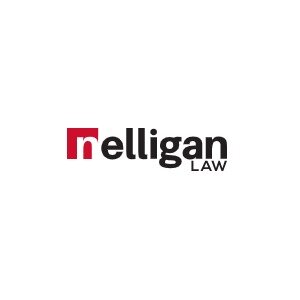Best Copyright Lawyers in Canada
Share your needs with us, get contacted by law firms.
Free. Takes 2 min.
Or refine your search by selecting a city:
List of the best lawyers in Canada
About Copyright Law in Canada
Copyright law in Canada is a legal framework that provides protection for the creators of original works. This protection covers literary, artistic, musical, and dramatic works, as well as certain other forms of creative expression. The main purpose of copyright is to give creators exclusive rights to their works, allowing them to control how these works are used and to benefit economically from their creations. Canadian copyright law is governed by the Copyright Act, which outlines the rights of copyright holders and the duration of these rights, generally extending to 50 years after the author's death.
Why You May Need a Lawyer
There are many situations in which an individual or organization might require legal assistance in the field of copyright. Some common examples include:
- Creating or publishing original works and wanting to understand the scope of protection.
- Disputes over ownership of a copyright or accusations of copyright infringement.
- Negotiating licenses or permissions for using copyrighted works.
- Needing enforcement strategies for copyright protection or defending against infringement claims.
- Appropriately using copyrighted materials in a business, educational, or non-profit setting.
In these and other situations, a lawyer specialized in copyright law can help navigate the complexities of the law to ensure rights are protected and legal obligations are met.
Local Laws Overview
In Canada, copyright law is mainly governed by the federal Copyright Act. Key aspects relevant to copyright include:
- Originality: Copyright protection applies to works that are original and expressed in some fixed medium.
- Rights Granted: Copyright grants the owner the exclusive rights to reproduce, perform, publish, adapt, and distribute the original work.
- Fair Dealing: An important exception that allows for the use of copyrighted works without permission for specific fair purposes, like research, criticism, or review.
- Duration of Protection: Copyright protection typically lasts for the life of the author plus 50 years.
- Moral Rights: In addition to economic rights, authors have moral rights which include the right to attribution and the right to the integrity of the work.
Frequently Asked Questions
What is the purpose of copyright?
The purpose of copyright is to protect the rights of creators, giving them control over the use and distribution of their original works and encouraging the creation of new works by providing a legal framework for protection.
How do I know if a work is protected by copyright?
If a work is original and has been fixed in some material form (such as written, recorded, or saved digitally), it is likely protected by copyright, unless it falls under an exception such as material in the public domain.
Do I need to register my work to get copyright protection in Canada?
No, copyright protection is automatic as soon as an original work is created and fixed in a material form. Registration is not required, but it can be beneficial if you need to enforce your rights in court.
What is fair dealing?
Fair dealing is a limitation on copyright that allows individuals to use copyrighted material without permission under specific circumstances such as research, private study, criticism, review, or news reporting.
How long does copyright protection last in Canada?
Copyright protection in Canada generally lasts for the lifetime of the author plus an additional 50 years after their death.
Can copyright be transferred or assigned?
Yes, copyright can be transferred or assigned to someone else through a written agreement. This is often necessary in publishing or content production industries.
What are moral rights?
Moral rights are personal rights attached to the creator, including the right to attribution and the right to object to derogatory treatment of their work. These rights cannot be transferred, but they can be waived.
What should I do if someone infringes on my copyright?
If you believe someone has infringed on your copyright, it's advisable to consult with a lawyer. They can help you decide on the best route of action, which may include sending a cease and desist letter or pursuing legal action.
Can I use copyrighted material without permission?
You may use copyrighted material without permission if your use falls under fair dealing or another specific exception. However, the scope of permissible use is limited, hence it's important to seek legal advice if you're uncertain.
What penalties exist for copyright infringement?
Penalties for copyright infringement in Canada can include monetary damages, account of profits, and injunctions to prevent further infringement. In severe cases, there might also be criminal sanctions.
Additional Resources
For more information on copyright in Canada, consider consulting the following resources:
- The Canadian Intellectual Property Office (CIPO) - provides information on intellectual property laws.
- The Copyright Board of Canada - oversees and regulates the collective administration of copyright.
- Industry Canada - offers general information on copyright laws and regulations.
- Creative Commons Canada - provides resources on licensing and using creative works legally.
Next Steps
If you need legal assistance with copyright issues, consider the following steps:
- Contact a lawyer who specializes in intellectual property law. They can provide the expertise needed to navigate copyright issues effectively.
- Gather all relevant documents and information related to your issue, such as proof of original work, communications, and any previous legal documents.
- Prepare a list of questions or concerns you have to make the most of your consultation with the lawyer.
Remember, a lawyer can not only help in enforcing your rights but can also provide invaluable guidance to prevent legal issues from arising in the first place.
Lawzana helps you find the best lawyers and law firms in Canada through a curated and pre-screened list of qualified legal professionals. Our platform offers rankings and detailed profiles of attorneys and law firms, allowing you to compare based on practice areas, including Copyright, experience, and client feedback.
Each profile includes a description of the firm's areas of practice, client reviews, team members and partners, year of establishment, spoken languages, office locations, contact information, social media presence, and any published articles or resources. Most firms on our platform speak English and are experienced in both local and international legal matters.
Get a quote from top-rated law firms in Canada — quickly, securely, and without unnecessary hassle.
Disclaimer:
The information provided on this page is for general informational purposes only and does not constitute legal advice. While we strive to ensure the accuracy and relevance of the content, legal information may change over time, and interpretations of the law can vary. You should always consult with a qualified legal professional for advice specific to your situation.
We disclaim all liability for actions taken or not taken based on the content of this page. If you believe any information is incorrect or outdated, please contact us, and we will review and update it where appropriate.
Browse copyright law firms by city in Canada
Refine your search by selecting a city.















